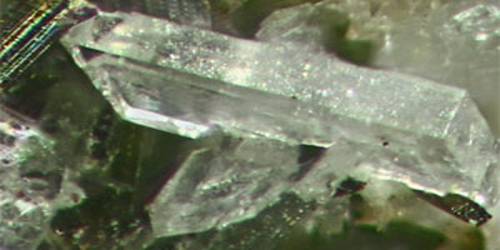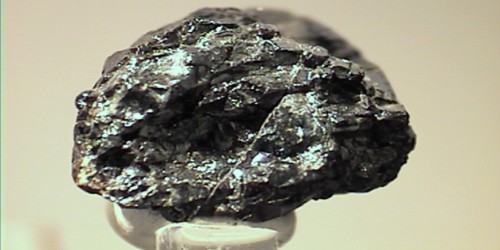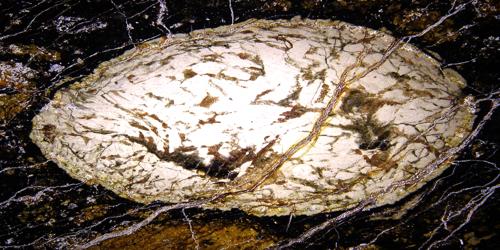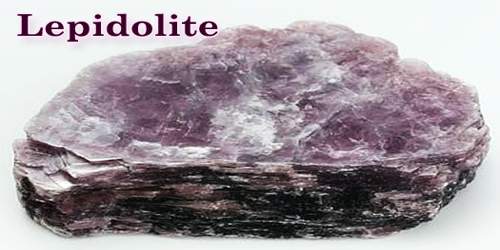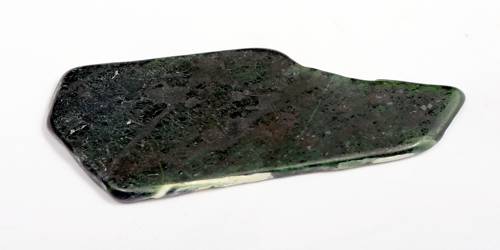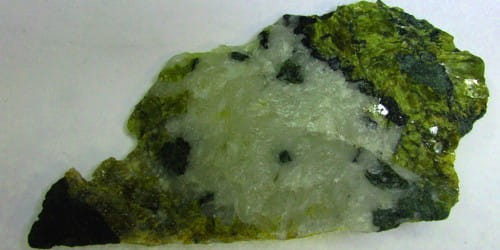Clinoptilolite is a natural zeolite comprising a microporous arrangement of silica and alumina tetrahedra. It has the complex formula: (Na,K,Ca)2-3Al3(Al,Si)2Si13O36·12H2O. The name is derived from the Greek words klino (κλίνω; “oblique”), ptylon (φτερών; “feather”), and lithos (λίθος; “stone”).
It is used in many applications such as a chemical sieve, a gas absorber, a feed additive, a food additive, an odor control agent and as a water filter for municipal and residential drinking water and aquariums. It was described in 1969 from an occurrence in Owl Canyon, San Bernardino County, California.
General Information
- Category: Tectosilicates Zeolites
- Formula: (Na,K,Ca)2-3Al3(Al,Si)2Si13O3612H2O
- Crystal system: Monoclinic
- Unknown space group
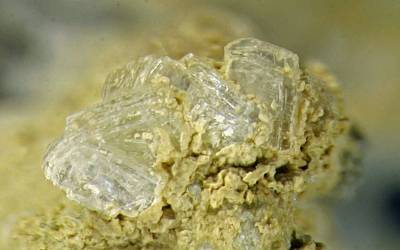
Properties
It forms as white to reddish tabular monoclinic tectosilicate crystals with a Mohs hardness of 3.5 to 4 and a specific gravity of 2.1 to 2.2. It commonly occurs as a devitrification product of volcanic glass shards in tuff and as vesicle fillings in basalts, andesites, and rhyolites.
- Mohs scale hardness: 3.5 – 4
- Luster: Vitreous
- Color is colorless, white, pink, yellow, reddish and pale brown.
- Transparency: Crystals are transparent to translucent.
- Crystal Habits include blocky or tabular crystals with good monoclinic crystal form.
- Fracture is uneven.
- Specific Gravity is approximately 2.2 (very light)
- The streak is white.
Structure
The structure of clinoptilolite is the same as heulandite and is sheet-like. It forms a series with heulandite:
- Clinoptilolite-Ca – heulandite-Ca solid solution series
- Clinoptilolite-K – heulandite-K solid solution series
- Clinoptilolite-Na – Heulandite-Na solid solution series
Use of clinoptilolite in industry and academia focuses on its ion exchange properties having a strong exchange affinity for ammonium (NH4+). A typical example of this is in its use as an enzyme-based urea sensor. It is also used as fertilizer and sold as a deodorizer in the form of pebble-sized chunks contained in a mesh bag.
Information Source;
